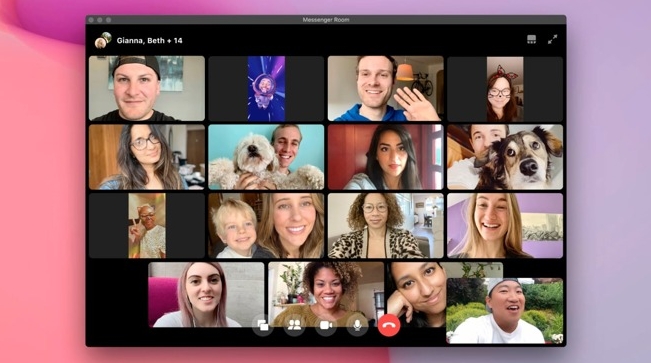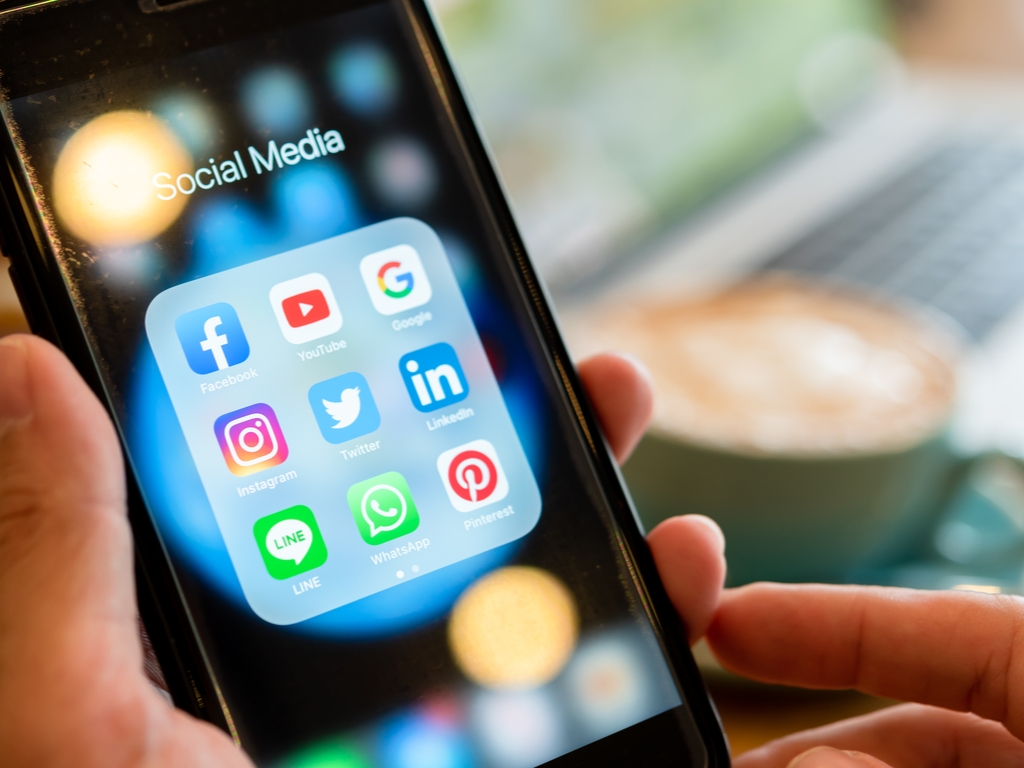Chat apps can ease social isolation for elderly people during coronavirus pandemic
| Facebook's video chatroom: Meeting 50 people, competing Zoom | |
| Top 11 tips for better use of video chat apps | |
| WhatsApp vulnerability allowed attackers to inject spyware: Report |
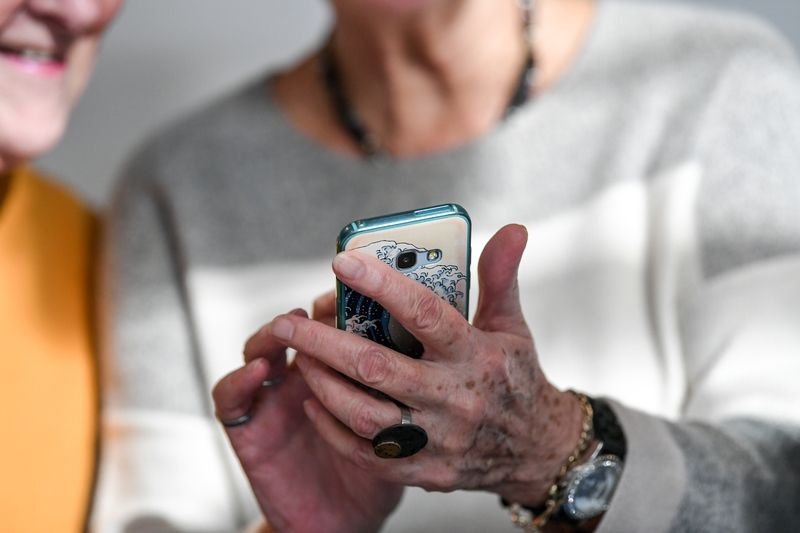 |
| With the risk of coronavirus infection separating countless grandparents from their children, chat apps have taken on even more relevance for those in isolation. Photo: DPA |
According to the Centers for Disease Control and Prevention (CDC-USA), cited by The Conversation, older adults are among the most at-risk groups for developing serious cases of, or complications from, COVID-19. This vulnerability likely means they will probably have to engage in physical distancing for longer than the general population.
For these adults, staying social during this time, while maintaining a physical distance, is crucial. Even before COVID-19, older adult populations have been dealing with the realities of social isolation and loneliness. The isolation, however, has been highlighted and exacerbated with the coronavirus pandemic.
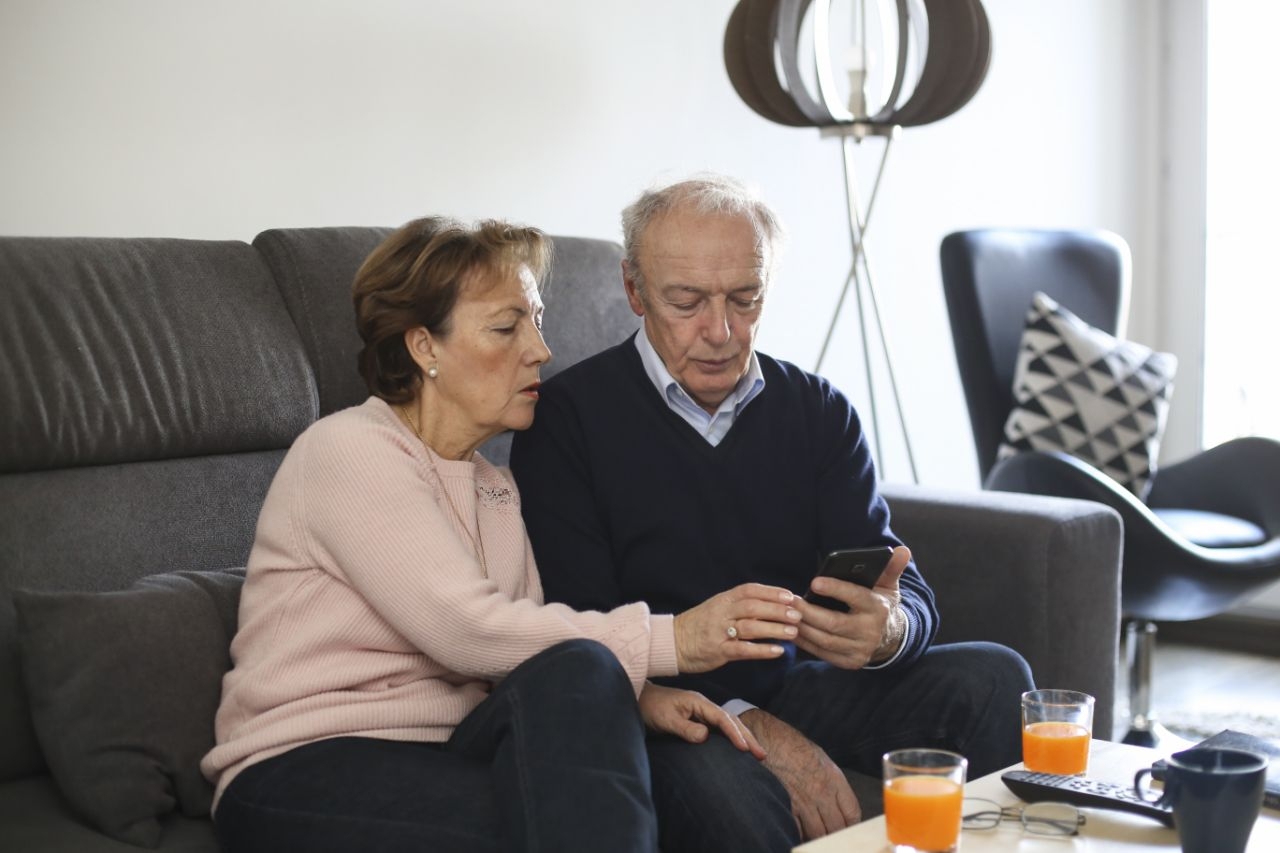 |
| The isolation has been highlighted and exacerbated with the coronavirus pandemic. Photo: Getty Images |
“We want to practice social distancing, but not social isolation,” said Jacklyn Isasi, communications director for the AARP’s Pennsylvania State Office (USA). Social isolation among seniors, she adds, was common even before the pandemic. In a 2020 study published by the National Academies of Sciences, Engineering and Medicine, about 43% of adults aged 60 and older reported feeling lonely — an element of mental health that can exacerbate existing health conditions, reported the Philadelphia Inquirer. In a recent survey of communities in the United States, 90 percent of older adults expressed their desire to maintain their independence. In North America, almost 29 percent of older adults live alone. Therefore, The Conversation suggested that technology is essential more than ever to help ease the distance.
to launch an official WhatsApp chat and smartphone application that will provide up to date, accurate information and advice on the coronavirus situation in Australia." data-reactid="33" style="text-align: justify;" type="text">In order to help older adults cope with the risk of isolation during practicing social distancing, a number of governments have partnered with tech companies to launch chat apps and smartphone applications with the aim of keeping them to be connected. “There is a significant number of old people who are not online, but there is also a large number who are online and use it for connecting to family,” Ian Yates, CEO of the Council on the Ageing (Australia), told Yahoo Lifestyle, describing social media and smartphones as "a lifeline to people in residential care".
 |
| Chat apps and smartphone applications are necessary for keeping elderly people to be connected. Photo: Shutterslock |
to launch an official WhatsApp chat and smartphone application that will provide up to date, accurate information and advice on the coronavirus situation in Australia." data-reactid="33" style="text-align: justify;" type="text">However, many people are concerned that millions of elderly people are feeling more isolated than ever during the coronavirus pandemic due to low or no tech literacy. According to a survey conducted by The Conservation, roughly one-third of Americans over the age of 65 say that they never use the internet, and 49 percent say they do not have a home internet service.
"Technology has become an essential lifeline for millions of people right now", BT group director of digital impact Kerensa Jennings said to Daily Mail. "But to combat loneliness, we must ensure that older people can take advantage of the benefits that technology provides, from accessing vital services to staying in touch with family and friends", she emphasized.
Professor Jennings suggested that elderly people should learn some relatively simple digital skills, which "can make a huge difference to the lives of older people and those that care for them during the lockdown'. Such skills can include "doing their own online shopping, accessing health services, or enjoying face-to-face calls with loved ones".
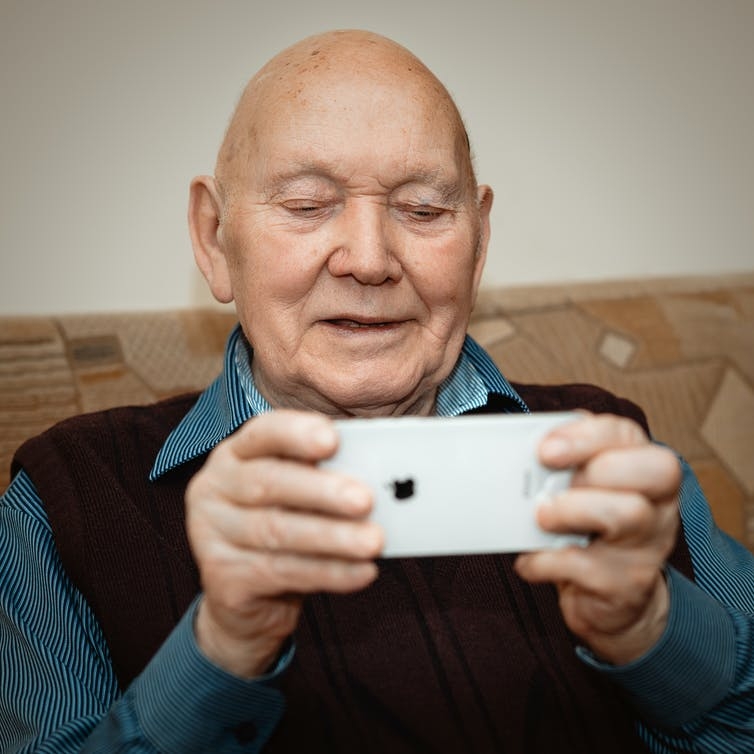 |
| Video chats can help keep older adults emotionally present. Photo: The Conversation |
Video calls can help
While a simple phone call may suffice to check in, video calling could be a more effective way to help people from feeling isolated, and check to see how they are doing. According to The Conversation, older adults who used video chat technology had significantly lower risks of depression than those who did not video chat. Video calls can help them cope with this pandemic, and enhance the well-being of an older population moving forward. More importantly, video calling platforms can help support the development of a stronger sense of connection and maintain already existing relationships.
Kerith Gabriel, Communications manager of the non-profit agency named The Philadelphia Corporation for Aging stressed that "Video calls should be the first way that caregivers get in touch", given the specific context of the current coronavirus outbreak.
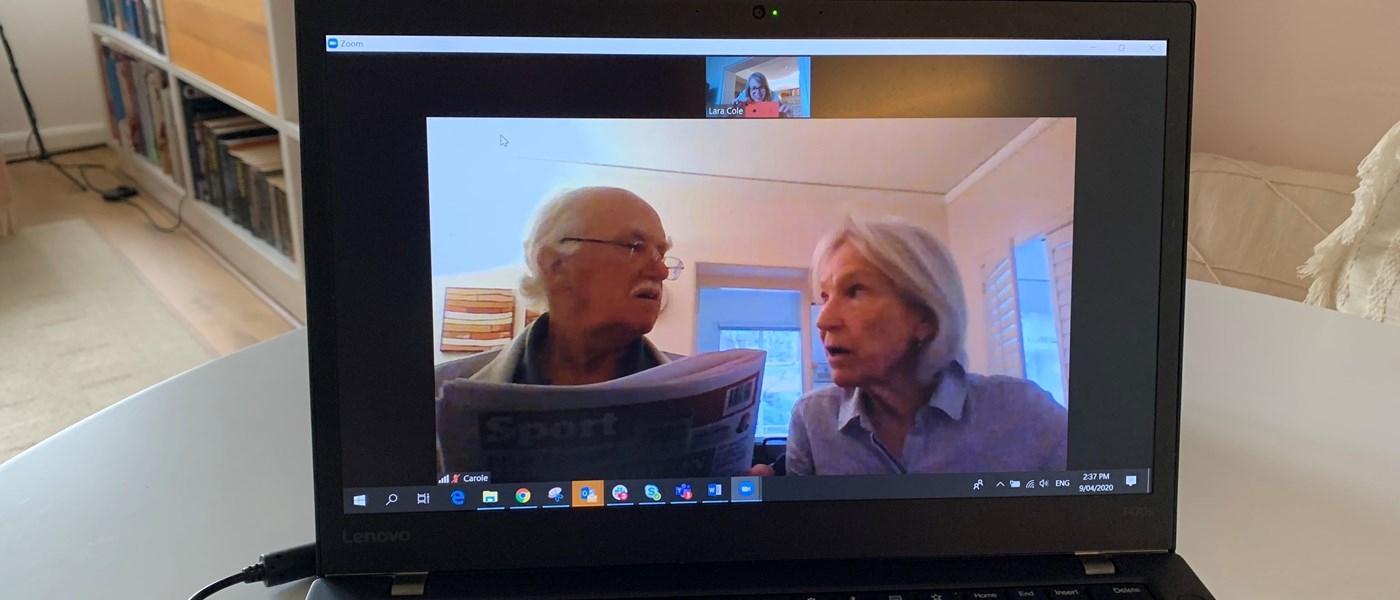 |
| Video calls may be an important way of keeping in touch during the coronavirus outbreak. Photo: Red Cross Australia |
Age UK, the charity for older people in the UK, adds that the choice of technology should be as "user-friendly as possible" for those unaccustomed to controlling video-chat software. "Something integrated like a video call app on a smartphone, tablet or a laptop with a built-in camera, for example, will often be more straightforward," adds Caroline Abrahams, its charity director, cited by BBC.
Victoria Atabakhsh and Joe Todd, two Ph.D. students of the University of Waterloo (Canada) wrote in The Conservation that, video calls can keep older adults engaged and a part of their loved ones’ lives. They can still visit with their grandchildren, have that morning coffee with their friends and be virtually present for memorable moments like birthdays. It allows older adults to remain physically distant, but emotionally present.
There are a wide range of choices of online social platforms for accessible and free options such as: WhatsApp, Skype, Zoom, Google Hangout, and many more. These apps allow older adults to interact face-to-face with their loved ones. If a senior has an iPhone or iPad, FaceTime may be the best option. It comes pre-installed on those devices, and is almost the same as answering a phone call.
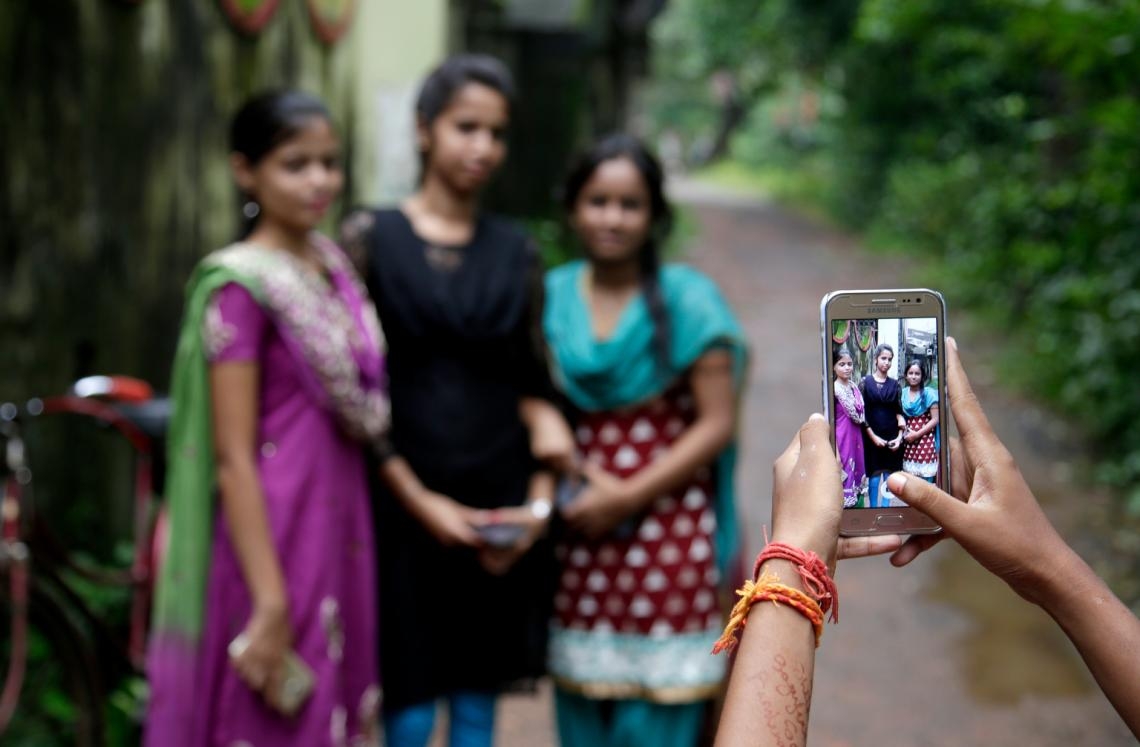 |
| Help older people stay connected, feel involved, purposeful and less lonely. Photo: UNICEF |
| Social media usage has grown as a result of the COVID-19 crisis, as more users go online to stay connected with family, friends, and colleagues. New data from insights and consulting firm Kantar (The UK) reveals exactly how much some apps are benefiting. According to a survey of more than 25,000 consumers in 30 markets conducted from March 14 to 24, WhatsApp is the social media app that has experienced the greatest gains due to COVID-19. Overall, WhatsApp has seen a 40% increase in usage that grew from an initial 27% bump in the earlier days of the pandemic to 41% in the mid-phase. For countries already in the later phase of the pandemic, WhatsApp usage has jumped by 51%. In individual markets, that usage may be even higher, Kantar noted. For example, WhatsApp usage in Spain was up 76%. Across all messaging platforms, the growth in usage has been the largest in the 18 to 34-year-old age group, the study also found. In addition, WhatsApp, Facebook and Instagram saw a 40%+ increase in usage from this same demographic. (Source: TechCrunch)
|
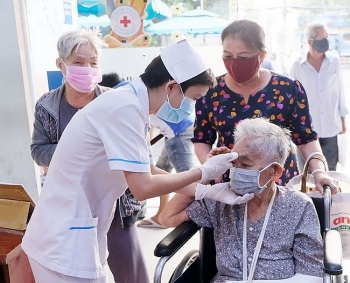 | HelpAge International supports older people amid COVID-19 In response to the Prime Minister's call for "Together to support the prevention of COVID-19", the Central Committee of the Vietnam Association of the Elderly ... |
 | First photo contest on elderly people launched The Health Ministry and General Office for Population- Family Planning have launched an online photo competition on the role of senior citizens in response to ... |
 | Health care of older people a growing concern: Vietnam Like many other countries in the region, Vietnam faces the question of how to care for its ageing citizens, most essentially when it comes to ... |
Recommended
 Handbook
Handbook
Vietnam Moves Up 8 Places In World Happiness Index
 Handbook
Handbook
Travelling Vietnam Through French Artist's Children Book
 Multimedia
Multimedia
Vietnamese Turmeric Fish among Best Asian Dishes: TasteAtlas
 Handbook
Handbook
From Lost to Found: German Tourist Thanks Vietnamese Police for Returning His Bag
Popular article
 Handbook
Handbook
Prediction and Resolution for the Disasters of Humanity
 Handbook
Handbook
16 French Films To Be Shown For Free During Tet Holiday In Vietnam
 Handbook
Handbook
Unique Cultural and Religious Activities to Welcome Year of the Snake
 Handbook
Handbook

